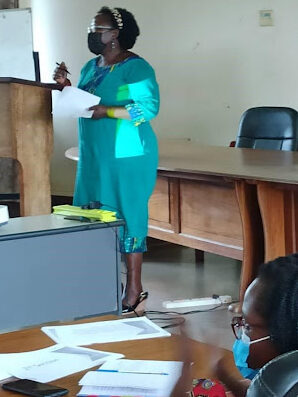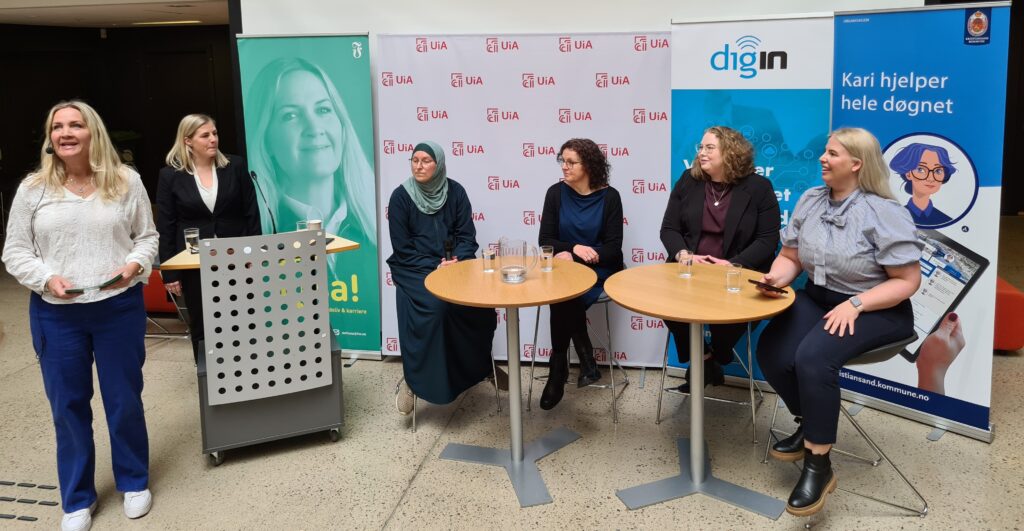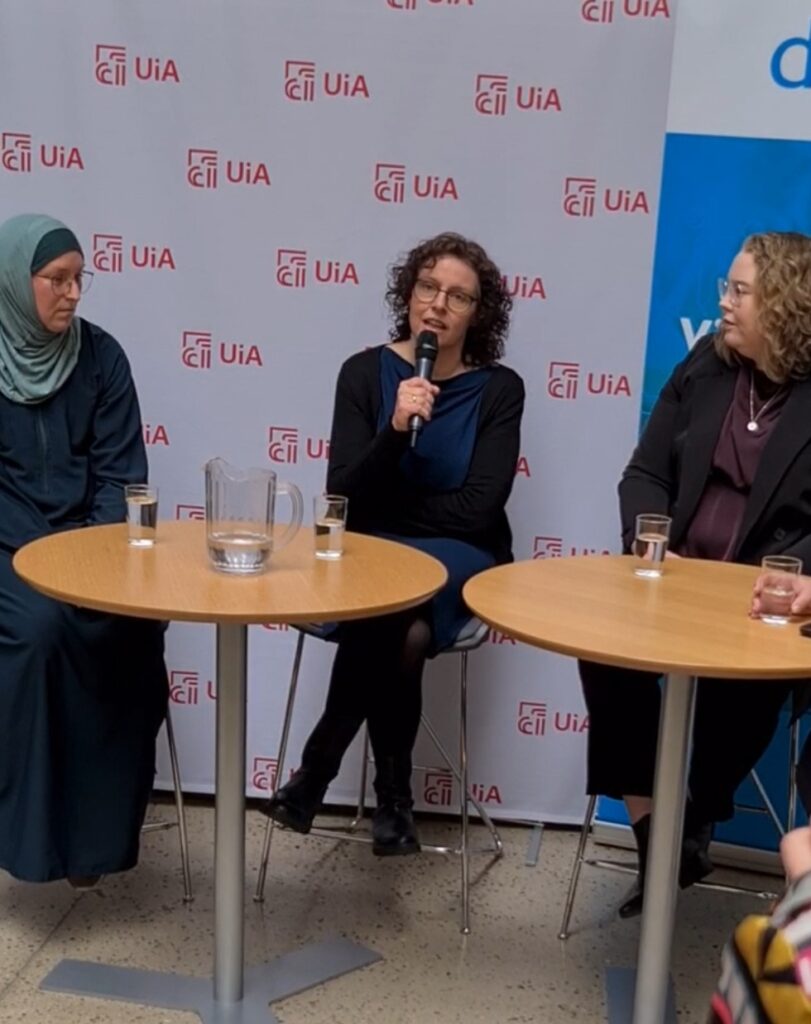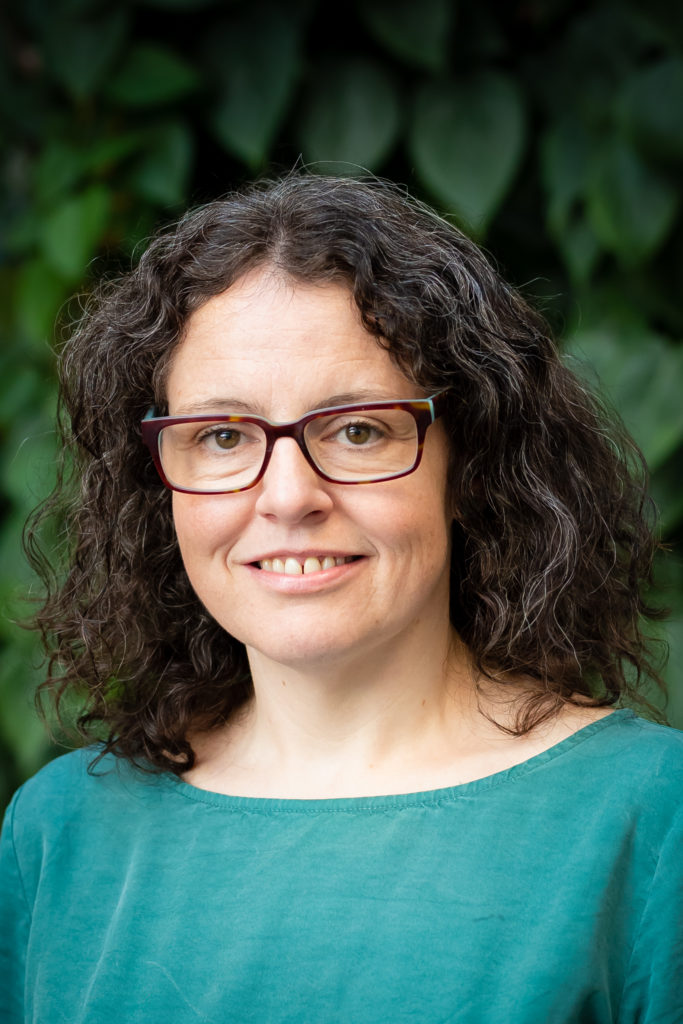Gendig at Makerere University: How It All Began
Ruth Nsibirano and Juliana Koury Gaioso
The remarkable journey of Gender and digitalisation across context (Gendig) at Makerere University
One of the key interventions of the GENDIG project is to digitalise courses at the Masters programme in Gender Studies at Makerere University, with the aim of enhancing access, increasing timely completion and eliminating attrition/ drop-outs for admitted graduate students. Here, we delve into the intriguing story of how digitalization unfolded, highlighting the significant steps and key individuals who paved the way for this transformative project.

Digitalization is not a mere transfer of life into the digital realm; it entails a complex process involving numerous offline elements and the collaborative efforts of many individuals. At Makerere University, the journey towards digitalization commenced with essential factors such as institutional partnerships flagged off with the signing of a contract between Makerere University and NOARD, political support and project launch at a colorful inception meeting, hardware acquisition, and comprehensive training.
In late 2021, the seeds of this groundbreaking initiative were sown, bringing together a dedicated team of visionaries. Noteworthy figures involved in the project’s inception included Professor Buyinza Mukadasi, the esteemed Director of Graduate School at that time. Alongside him, Professor Josephine Ahikire, the respected Principal of CHUSS (College of Humanities and Social Sciences), and Associate Professor Sarah Ssali, the accomplished Dean of the School of Women and Gender Studies, attended the project launch and gave their remarks at the inception meeting, together with Dr. Ruth Nsibirano the Project PI.




The Gender and Digitisation project garnered essential resources to propel its mission forward. Project equipment, including six cutting-edge laptop computers, a state-of-the-art projector, and a high-quality scanner, were procured. These technological tools were specifically chosen to empower the team in their pursuit of project goals and to facilitate seamless execution.


The journey of Gendig at Makerere University is a promising testament to the transformative power of digitalization. Stay tuned as we explore further milestones and achievements in this groundbreaking project.
Gendig in a panel debate during the Democracy Week in Kristiansand:
Digitalisation and technology from an equality perspective
Juliana Koury Gaioso

During Democracy Week in Kristiansand, Arnhild Leer-Helgesen, associate professor at Global Development and Planning at UiA and head of the Gendig project, participated in a panel debate on Digitalisation and Technology from an Equality Perspective. She brought a critical view on the structural issues involving the digitalisation of the world, asking who is out and who gains. On her side, Heidi Esma Dahl Bønnhoff, associate professor in the Department of Sociology and Social Work at UiA, pointed out the effects of technology illiteracy on a personal level and how it affects the socialization of women with an immigration background in Norway. Compounding the panel, Rebekka Olsson Omslandseter, Ph.D. Research Fellow from the Department of Information and Communication Technology at UiA brought to the debate the lack of women representatives in technological advances.

Brigitte Klækken, known from the “Det ho sa” podcast, led the panel and asked Arnhild to clarify the structural issues involving women and digitalisation. She explained, “The Universities in Uganda and Tanzania (Makerere University and University of Dar Es Salaam) approached UiA with a wish to digitalise the master’s degree, which is seen and understood as the future to include more students in education. But the problem is that many women do not have access to a mobile telephone or PC. If they have, internet connection can be poor and unstable, in addition, it is very expensive. So digitalisation does not lead to more equality if we do not adress root causes of economic and social inequalities. Then rural women in Eastern Africa will still be the last to benefit from technological advances. We therefore need to do much more that digitalization to include women in for example higher education”. The GENDIG project, financed by Norad, supports digitalization of Gender Studies, but also research that looks into the effects in terms of inclusion.
Inspiration for the panel/debate:
In times of heated cyberactivism, artificial intelligence and social media control, little is focused on global access to the internet and technology. Women are the majority outside this arena, with 37% without access to the digital world. This scenario raises debate due to its personal, structural and technological impact. To discuss this global scenario, Digin, a Norwegian ICT cluster, Kristiansand Municipality, and the University of Agder organized a panel conversation on the 8th of May in the Kristiansand City Hall. The debate was inspired by the UN topic for international women’s Day, DigitALL Innovation and Technology for Gender Equality.
More info: UN Women Democracy Week
In the media

Arnhild Leer-Helgesen was interviewed by NRK Sørlandet on gender equality, related to the October 10th seminar. The interview is in Norwegian and can be found here.
The University also published the news article “Global backlash against gender equality”.
Seminar: “The global backlash against gender equality: A challenge to international development cooperation and research?”
On October 10th, 2022, we gathered around 90 attendants – some physically present, other digitally – in the seminar “The global backlash against gender equality: A challenge to international development cooperation and research?” at Bølgen bærekraftsenter in Kristiansand.
The seminar was hosted by The Department of Global Development and Planning at The Faculty of Social Sciences, UiA, NFU – Norwegian Association For Development Research and The Strømme Foundation.
The seminar was recorded, and can be watched here.
Following lectures were given:
- “Introducing the global backlash against gender equality”, Arnhild Leer-Helgesen (UiA/NFU)
- “A knowledge-based development cooperation: Whose perspectives counts in the Norwegian strategy for gender equality?”, Kari Marie Thorsen, Senior advisor, Section for Gender Equality, NORAD
- “The role of universities in Knowledge Production to address the Backlash on Gender Equality for enhanced cooperation and International development”, Ruth Nsibirano, Lecturer and Post graduate coordinator at the School of Women and Gender Studies, Makerere University
- “Promoting gender equality and women’s empowerment in international development– experiences from the field”, Celeste De La Huerta, Senior advisor, Strømme Foundation
- “Teaching gender and diversity in a cross-cultural online classroom”, Hanne Haaland, Assciate professor at the Department for Global Development and Planning, UiA.
